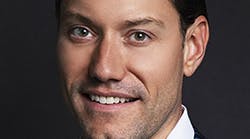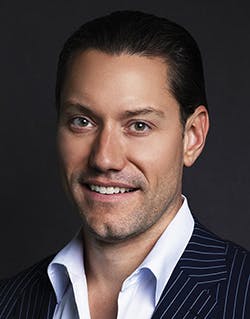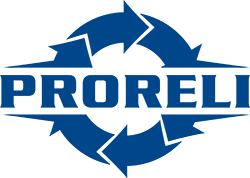Issues facing the industrial workforce today and how to overcome them
Based on research conducted this year by Plant Services, it is still a challenge for industrial facilities to recruit skilled workers, although it is getting somewhat easier to retain people once they come on board.
Chris Pepin is the founder of Progressive Reliability, a company dedicated to decreasing turnover and simplifying the hiring process. Chris and the Progressive Reliability team specialize in recruiting direct hires, contract experts, and subject matter experts in the maintenance and reliability space. Their approach is to focus the majority of the vetting process on intangible and untrainable traits, ensuring that the right candidates are paired with the right opportunities, eliminating the noise and frustrations that stem from poorly matched talent.
Plant Services recently spoke with Chris on key issues currently facing the industrial workforce, and some of the challenges involved with recruiting maintenance and reliability professionals.
PS: Chris, you founded Progressive Reliability about three years ago. Could you tell me and our listeners a bit about the company, what the core mission is of Progressive Reliability, and why is that mission important in today's industrial market?
CP: First off, thanks for inviting us here to talk with your audience today. It's good to be able to share a little bit about what we've learned.
Progressive Reliability was really founded through a lot of research in terms of trying to figure out where we could take the best parts of the recruitment business, and some of the assets that our team's gathered over the last decade or so, and how can we apply them to the right vertical with the right people with the right missions?
One of the best things that we noticed within the maintenance or reliability world is, first of all, the amount of respect and comradery everybody has for one another. It is a very important, very large, and also a very small business. Everybody knows everybody. The level of full-on accountability in terms of, “If you do a good job, you get known pretty quick, and if you don't do a good job, you get known pretty quick,” I think that is a terrific double-edged sword selling for one. We really like that piece about the business.
But the other thing is, truthfully, just the amount of respect people have for one another. There is the types of work, the amount of time people spend together. We've just found that the way folks within the manufacturing world treat one another is infinitely more healthy than what we found in, say, healthcare or the technology world. That was really, really important. If we were going to apply the methods we've learned over the last decade in the business of recruiting, we want to make sure that we find the right healthy environment.
The other thing is the tremendous demand of what we're trying to accomplish. There is just not only a longstanding talent shortage going on stemming from the last 30 years, but it's widening. So that just proved to be a really interesting challenge for us to overcome. Every time we speak to a seasoned leader, they want nothing more than to ensure their knowledge is handed off to the next generation. And that's the kind of positive connection we really want to make.
PS: Chris, I couldn't agree with you more on the way you characterize this sector of industry. You know, I worked as a contractor for the EPA for 10 years and I thought those folks were watching each other's backs, but I have not experienced quite the comradery like you described until coming into maintenance reliability. It's notorious for people sharing phone numbers at all hours of the night to help people get home safely and fix the assets. Could you talk about some of the key challenges facing this group today and how you see the profession changing over the next, say, 5, 10 years?
Chris Pepin
CP: There's a host of challenges that are coming up over the next 5, 10 years, and we spend all day on those. We tend to focus on the talent side, and so just out respect for everybody's time today, I'd like to kind of keep it more in that arena.
What we're finding is that a lot of really great talent skills are not necessarily leaving, but transitioning from the market. So a lot of people with the best experience, they may be retiring from the constraints of their normal job, but the other opportunity is, folks can spend time with their grandkids and still be able to participate. I think what looks like a lot of the talent gap challenge and people leaving and people retiring is more of a shift than it is necessarily a loss, and what we're focusing on right now is how to capture that knowledge base and how to make sure that our clients are able to capitalize on what they have.
The other thing is in any transitioning environment, you're going to find that the talent doesn't leave, it migrates. So what we're seeing is companies with the best management, the best training, and the best opportunities, even if they are challenging environments, folks that want to grow are going to go to an environment where they can. People who want to grow are going to leave a stagnant environment, so whoever can do the best job in terms of managing, grooming, and improving the people that work for them is the environment that's going to win this talent migration.
PS: I like those terms, like talent migration and talent transition. It's a lot more accurate than just skills gap and retirement gap. What are some of the ways that you and the Progressive Reliability team are getting down there in the weeds with people and tackling the increasing demands that are being put on such unlimited pool of people and experience?
CP: I've got a longtime advisor, and he had two really great points in terms of what makes him good. He's been a Silicon Valley CEO for years, and he told me a couple of things. For one, you have to know when somebody is telling the truth or not, and you've really got to know what questions to ask. That only takes about the entirety of a career.
So a lot of what we do and what we've amassed internally is being able to sniff out whether somebody is the right fit, whether they have the right culture. And sometimes we have a lot of, frankly, unconscious confidence there that comes about through experience, but the other thing really truly is knowing the right questions to ask. I think the most seasoned in hiring, and recruiting, and retaining – and most of your audience will know this – that those really great questions that are right for you came about through difficult days. So I think it's really important to capture and put together what's best because you can tell people how to hire in general, but to know what's right for them, to know how to get to what's right for them, that's where the real secret sauce is. And, unfortunately, experience is something that you just can't do quickly.
PS: That's a really interesting take on that specific kind of challenge. I haven't heard it phrased in quite that way, but it's very real. We've encountered situations such as, say, first-line supervisors not being able to get training immediately. We've seen things like teams who are unfamiliar with managing partners when plants decide to bring on, say, a third-party services team to help with maintenance. Beyond that core that you're talking about, the talent transition issue, what are some of the most common challenges that you see your clients facing right now, again, beyond that immediate transition of talent and skills?
CP: There's a couple things that we've come across. Sometimes it's tough to see the forest for the trees and the one big one is just the amount of competitiveness that's going on and hiring outside of your walls.
Let's put it this way: there's an old saying, “We're too poor to afford cheap things." And you just can't buy cheap things that break all the time when you're on a short budget. Well, it's the same thing with your time, right? If you're really short on time, you can't afford people that don't work. Let me expand on this a little bit. What happens is hiring managers with maintenance and reliability responsibilities are super taxed for time as is the resource constraint, that's why they're trying to hire more people. There's fires to put out all the time as they're doing the reliability journey, and then they have to interview people and invest in people that they may not wind up hiring. That's frustrating. And we totally empathize with the situation going on there.
Listen to the entire interview
Unfortunately, what happens though is when you're trying to compete for a really great person and you cancel that interview two or three times, you are going to lose them. And you're also not showing the amount of time that they need and they require for their skills and what they bring to the table. So what happens is a lot of times people will shoot themselves in the foot by needing to cancel, or move, or push, or not really getting that interview done right, and they wind up with the person that works through that broken hiring system and then have to expend 10 to 20 times as much investment in getting that wrong person up to speed on the other side of the hire.
So it's a vicious cycle, right, versus the virtuous cycle, which would be invest clearly in what you need to do, just take a breather and really understand what the priorities are for you and your organization, and then executing on those and being willing to invest in getting that right person upfront. It makes the backend infinitely better, and that kind of ties back into the, yeah, we're too broke to have cheap things. And sometimes, if you're tight on time, you cannot afford a cheap process.
One of the other really important things that I think a lot of companies miss is, when you're short on time, you have the opportunity to rent somebody else's. Everybody's trying to compete to get that right next hire and what's happening is a silver lining we see in this talent transition. Everybody's talking about aging out, losing the workforce and everything else and all the skills are going; there's so many folks that want the time, the flexibility with their grandkids, but are so passionate about what they do, they love to do what they do, and they want to be able to still be in the game.
Everybody sits around and talks about war stories about what they did, problems they overcame, challenges they made it through, right? There's a tremendous opportunity to take these people and to take all this great knowledge that may be sitting just outside of a full-time job and augment what you have. You can bring somebody on for three months or six months, get caught up on your backed up PMs, as well as make sure that their knowledge transfer takes place into your team. Even though people are leaving their organization, they're able to reach four or five organizations within a year, because the time can be blocked out differently and a lot of knowledge transfer can take place and spread.
This is the one really important thing we want to participate in, is the spreading of knowledge. Even though people may be leaving their full-time career, they still have all of that knowledge base that they want to make sure happens because it was so hard-fought and there's nothing better than seeing the next generation take on the career that you invested so much in and care so much about.
PS: Chris, I wanted to ask you a question about the projects that your team are specifically working on. What are some of the challenges that you see on the job with your clients these days?
CP: We've actually been getting a little more specific, because, obviously, talent recruiting is a really broad thing. We're seeing a lot of opportunity coming up right now within MRO, so we've got several projects in the pipeline in terms of helping to get the MRO side of the house cleaned up. You know, we call it, "cleaning out the garage." It's just a real light way of putting what it is, but we've got a tremendous amount of partnerships there.
Continuous improvement is becoming more and more popular by the day, and rightly so. As well as, frankly, due to last year's shutdowns in 2020-2021, there are a lot of backed up PMs. And that's where our subject matter experts are really important, because not only can you bring somebody in on a short-term basis to get you caught up, but they can also make sure that all of their skills and experience are transitioned to your team. That knowledge transfer, that knowledge share can take place. You can get caught up, and also your team can get better wisdom and better experience shoulder-to-shoulder.
PS: What a great moment for PM optimization efforts in general. As long as we're backing up, let's clear out the garage, and see what we need, and see what we don't.
CP: Yeah, and weirdly enough, last year, a lot of companies in a knee-jerk reaction handed out some early retirement packages. There are just a lot of tremendously talented people that have come out of that who made it out six months in retirement, and they're ready to go again. So, that's kind of the people we've been working with this year, and it's been a lot of fun, it's been a really interesting silver lining.
PS: Chris, we've talked before about some of the partnerships that you and the Progressive Reliability team have built that are outside of the immediate maintenance world but would still help drive your company's mission. One of the primary examples is the relationship you've built with Operation New Uniform, and I believe you're on the board. Can you talk about some of those relationships and projects, and how you bring that knowledge into your mission?
CP: One of the most important things you can do as you grow is pay attention to those who can grow along with you. It's one of the most valuable parts of any journey. And so right at the get-go, we have been involved with an organization known as K9s for Warriors, it's based here in Jacksonville and where we are, there are a lot VSOs, or veteran service organizations. The Wounded Warrior Project is actually based here, I used to work in the same building as them. There's this tremendous knowledge base in town around veteran service and through our relationship with K9s and working with them initially, we got introduced to Michelle McManamon, the founder of ONU.
Operation New Uniform specializes in working with transitioning veterans to make sure they have the right interview and soft skills required for a job in the private sector. So having over a decade of recruitment experience and worked with hundreds and thousands of people in acquiring a new job, I thought it would be a perfect fit to take our knowledge base from Progressive Reliability and apply it within this organization. As you mentioned, we were fortunate enough where a board seat opened up and they let us join along, and it's just been great being able to participate in their curriculum, being able to participate in teaching some part of the coursework. I just think they're a fantastic organization doing a lot of good work for people who deserve it the most.
PS: Let me ask you a final question and we'll wrap back around to the issue of job hunting and hiring. You have helped me approach this issue from both sides of the coin, to involve hiring teams more into the discussions I have with people, so let me ask you the question back: What do you think is most important for job seekers to know about the current marketplace, and what do you see as most important for hiring teams to know?
CP: Well, we've covered with hiring teams, especially direct-hire, the competitive nature and just knowing that you have to compete, and really you're competing on time. Forgive the sales analogy, but we have a saying, time kills all deals. If you have a really good person on the line and you take too long, you lose the momentum and that sense of urgency is really important. You can't rush it either, of course. You have to really make sure that both parties are doing their due diligence.
On the job seeker side, it's equally important to take a moment and really reflect on what has and hasn't worked in the past and ensure you're driving towards the right balance between challenges, opportunities, and assets. Remember, there's way more good jobs than there are good people, so truly understanding the right environment to grow your skills and experience is a genuinely important differentiator for everyone involved once you get on the other side of that job wall.


